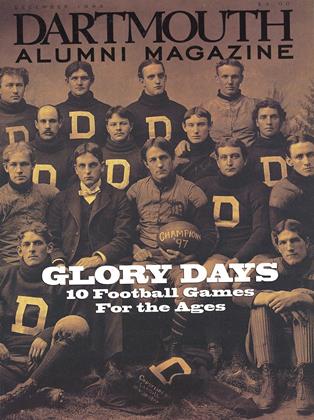Worker Bees, Hopes and Heroines
For additional reading about Russian culture, Juliet Johnson and John Kopper recommend:
Hope Against Hope: A Memoir by Nadezhda Mandelshtam (Atheneum Press, 1970). Mandelshtam chronicles the life of her husband, Osip Mandelshtam, one of the greatest Russian poets of this century. Her dazzling prose packs, the punch of a superb detective story, but in this case, we find everyone is detected. In detailing her husband's fall from favor and eventual anonymous death en route to one of Stalin's concentration camps, Mandelshtam paints with a fine brush the human cruelty of life in the U.S.S.R. during the 19305, when friends betrayed friends out of fear, and those courageous enough to maintain their integrity perished.
Love of Worker Bees by Alexandra Kollontai (Academy Chicago, 1978). Kollontai, acclaimed as the most influential female Bolshevik in revolutionary Russia, wrote these short stories to spread her radical ideas to ordinary Russian women unlikely to pick up the dry, theoretical treatises that were a staple of Marxist-Leninist political discourse. These fascinating stories delve into the romantic lives of revolutionary women, illustrating how their political activities and personal lives intertwined and clashed in the Russia of the early 19205.
No More Heroines? Russia, Women and the Market by Sue Bridger, Rebecca Kay and Kathryn Pinnick (Routledge, 1996). Drawing on first-hand field research in the Moscow region, No More Heroines? vividly describes the desperate economic straits of many Russian women today. In the tight labor market of this still-patriarchal post-Soviet society, women are the first fired and the last hired (unless the position calls for a woman "without inhibitions, in the all-too-common language of help-wanted advertisements). Yet this lively book does not portray women solely as victims of the transition. Instead, it describes the varied, creative survival strategies that Russian women have adopted to deal with the instability that has now become an inescapable part of their daily lives.
Present Imperfect: Stories by Russian Women edited by Ayesha Kagal and Natasha Perova (Westview Press, 1996). Present Imperfect introduces us to the bright spectrum of prose of the last decade written by Russian women. It is an anthology of short stories, arguably the healthiest and liveliest genre in Russian literature today. Though all of the stories address the problems of women in Russia—sometimes comically, sometimes morbidly, but always with scintillating irony—the stories also serve as polished lenses through which every aspect of Russian life is noted and held up for critical inspection.
Johnson
Kopper
 View Full Issue
View Full Issue
More From This Issue
-
 Feature
FeatureA Sense of Space
December 1999 By Jon Douglas ’92 -
 Cover Story
Cover StoryBig Green Glory
December 1999 By Jack DeGange -
 Feature
FeatureSoccer Mom
December 1999 By Patricia E. Berry ’81 -
 Feature
FeatureStrange Science
December 1999 By Shirley Lin ’02 -
 Feature
FeatureA Noble Pursuit
December 1999 By Kevin Goldman ’99 -
 Article
ArticleMother Russia's Daughters
December 1999 By Kathleen Burge '89
Article
-
 Article
ArticleMARKS CAPTAIN FOR NEXT YEAR
November, 1909 -
 Article
ArticleNOTES
December, 1922 -
 Article
ArticleLIBRARY ADDS OLD BOOK TO VALUABLE COLLECTION
January 1924 -
 Article
ArticleEnrollment 2,953
November 1948 -
 Article
Article1959
MAY | JUNE 2016 By —Dick Hoehn -
 Article
ArticleNew York
OCTOBER 1970 By ALAN V. DAVIES ’63, Charles McAllister ’59

